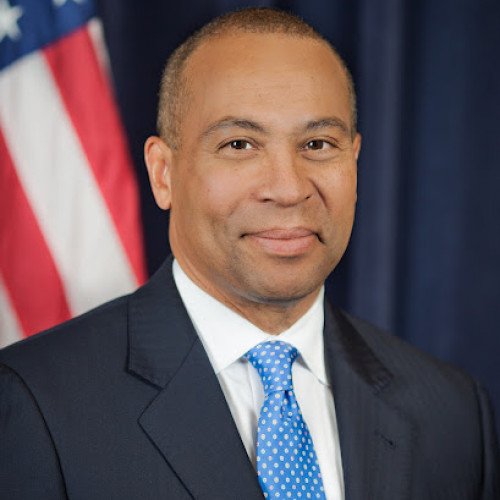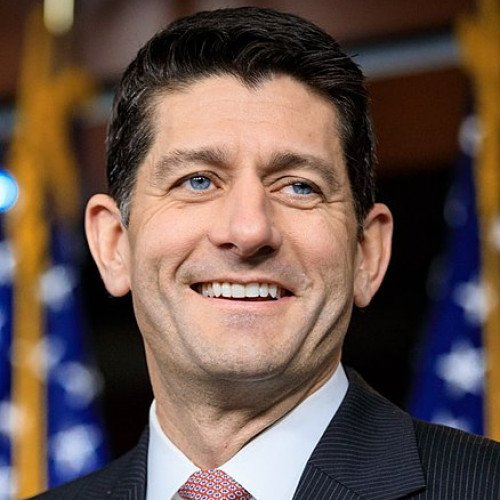Deval Patrick vs Paul Ryan

Deval Patrick
Deval Laurdine Patrick (born July 31, 1956) is an American politician, civil rights lawyer, author, and businessman who served as the 71st governor of Massachusetts from 2007 to 2015. He was first elected in 2006, succeeding Mitt Romney, who chose not to run for reelection to focus on his presidential campaign. He was reelected in 2010. He was the first African American Governor of Massachusetts. A Democrat, Patrick served from 1994 to 1997 as the United States Assistant Attorney General for the Civil Rights Division under President Bill Clinton. He was briefly a candidate for President of the United States in the 2020 U.S. presidential election. Raised largely by a single mother on the South Side of Chicago, Patrick earned a scholarship to Milton Academy in Milton, Massachusetts in the eighth grade. He went on to attend Harvard College and Harvard Law School, where he was president of the Harvard Legal Aid Bureau. After graduating, he practiced law with the NAACP Legal Defense and Educational Fund and later joined a Boston law firm, where he was named a partner at age 34. In 1994, Bill Clinton appointed him as the United States assistant attorney general for the civil rights division of the United States Department of Justice, where he worked on issues including racial profiling and police misconduct. During his governorship, Patrick oversaw the implementation of the state's 2006 health care reform program which had been enacted under Mitt Romney, increased funding to education and life sciences, won a federal Race to the Top education grant, passed an overhaul of governance of the state transportation function, signing a law to create the Massachusetts Department of Transportation, increased the state sales tax from 5% to 6.25%, raised the state's minimum wage from $8 per hour to $11 by 2017, and planned the introduction of casinos to the state. Under Patrick, Massachusetts joined the Regional Greenhouse Gas Initiative (RGGI) in an effort to reduce greenhouse gas emissions. Shortly after Patrick's second term began on January 6, 2011, he declared he would not seek re-election in 2014.Patrick is a managing director at Bain Capital and serves as the chairman of the board for Our Generation Speaks, a fellowship program and startup incubator whose mission is to bring together young Israeli and Palestinian leaders through entrepreneurship. He also holds a Board of Directors position at telehealth company American Well.Members of his own inner circle and Barack Obama's inner circle encouraged Patrick to run for president in 2020, but Patrick ruled out a 2020 presidential bid in December 2018. In November 2019, however, uneasy about the existing field of Democratic candidates, Patrick was reported to have called a few leading Democrats and allies to say that he would soon announce a 2020 presidential bid. He formally entered the race on November 14, 2019. He ended his campaign on February 12, 2020, following a very poor showing in the Iowa caucus and the New Hampshire primary.
Statistics for this Xoptio

Paul Ryan
Paul Davis Ryan (born January 29, 1970) is a retired American politician who served as the 54th speaker of the United States House of Representatives from October 2015 to January 2019. He was also the 2012 vice presidential nominee of the Republican Party, running unsuccessfully alongside Mitt Romney. Ryan, a native of Janesville, Wisconsin, graduated from Miami University in 1992. He spent five years working for Republicans in Washington, D.C. and returned to Wisconsin in 1997 to work at his family's construction company. Ryan was elected to Congress to represent Wisconsin's 1st congressional district the following year, replacing an incumbent Republican who ran for U.S. Senate. Ryan would represent the district for 20 years. He chaired the House Budget Committee from 2011 to 2015 and briefly chaired the House Ways and Means Committee in 2015 prior to being elected Speaker of the House in October 2015 following John Boehner's retirement. A self-proclaimed deficit hawk, Ryan was a major proponent of Social Security privatization in the mid-2000s. In the 2010s, two proposals heavily influenced by Ryan—"The Path to Prosperity" and "A Better Way"—advocated for the privatization of Medicare, the conversion of Medicaid into a block grant program, the repeal of the Affordable Care Act, and significant federal tax cuts. As Speaker, he had a role in passage of the Tax Cuts and Jobs Act of 2017. His other major piece of legislation, the American Health Care Act of 2017, passed the House but failed in the Senate by one vote. Despite his past fiscal conservative rhetoric, Ryan's tenure as Speaker of the House—most of which coincided with a period of unified Republican control of the federal government—saw a significant increase in federal government spending and deficits. Ryan declined to run for re-election in the 2018 midterm elections. With the Democratic Party taking control of the House of Representatives, Nancy Pelosi succeeded Ryan as Speaker of the House.